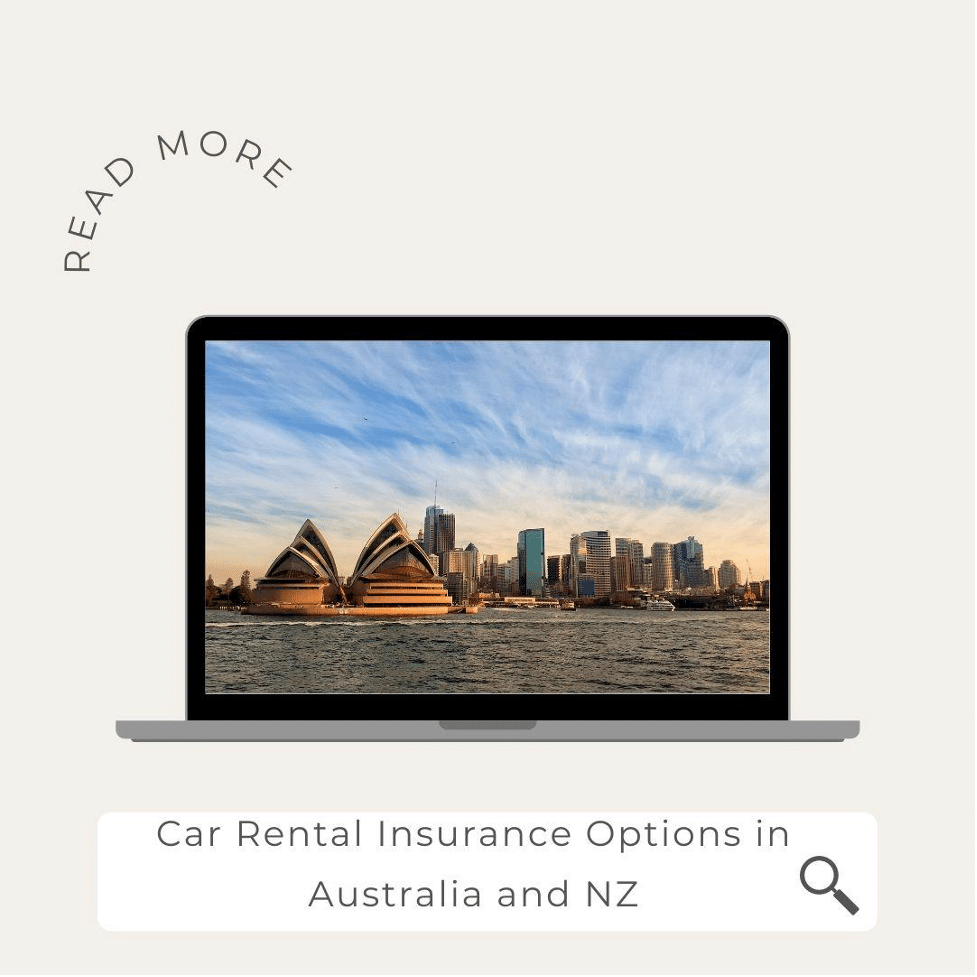A self-drive trip is the greatest opportunity to enjoy a new country. You are not bound to anything and enjoy complete freedom of movement. You can go wherever you want and plan your budget accordingly.

It has become especially important following the coronavirus pandemic. If you arrive in Australia or New Zealand by plane, you can rent a car for the time of your visit.
But do not forget about your safety during road trips. For this, be sure to arrange a proper insurance policy for your rental vehicle.
How to Rent a Car in Australia and NZ?
It is very simple to book a car in both countries. Major car rental brands are available both in Australia and New Zealand, in addition to a bunch of smaller local agencies.
So you can find a car for any class and space. The renter must reach the 21-year age and have at least 12 months of driving experience. Besides, you need to provide:
- International driving license
- Passport
- Credit card to book a deposit.
Sometimes, a rental office may check a visa and travel history.
Some companies try to meet halfway the clients who do not match the requirements and offer to increase the amount of deposit.
Do You Need Insurance for a Rental Car?
An essential stage in the car rental process is car insurance against common risks that may arise during a trip. In the vast majority of cases, all car rental deals include a basic level of insurance.
Nobody will allow you to drive a car without insurance. In certain cases, you can use your credit card or travel policy if they include coverage for a rental car. If you want full insurance, you will have to arrange it additionally for an additional payment.
It is highly advisable to read what this or that policy offers and covers before buying it.
Types of Basic Car Rental Coverage
There is a distinction between car rental insurance and personal car insurance.
The standard package for renting a car in Australia and New Zealand typically includes three types of coverage: Collision Damage Waiver, Theft Protection, and Third-Party Liability (TPL). However, it’s important to remember that regulations may differ between agencies.
- CDW protects you in the event of damage to the car’s body. However, it almost always has a deductible that you will have to pay from your pocket. The deductible amount changes based on where you rent the car, the company you use, and the type of vehicle you choose. In addition, damages like broken windscreens, tires, and underbody are often not included in the coverage. This is why it’s important to consider getting car hire excess insurance Australia. If the car is damaged while you have it, the rental company will estimate the repair costs and charge your credit card up to the amount of your excess. Excess waiver insurance covers your excess liability and also includes coverage for damages to the roof, undercarriage, auto glass, and windshield, as well as towing expenses, misfuelling, loss of car key, and tire damage. These damages are typically not covered by the basic CDW policy.
- TP provides protection in the event of theft or attempt of rental vehicle theft. Such coverage also comes with a deductible that must be paid in case of such an incident.
- TPL is payable if you hurt someone or damage something with your rental car. It does not cover the rental car itself. Generally, Third-Party Coverage payments have a certain limit.
What Is Car Rental Excess Insurance?
As we mentioned, you can always purchase additional insurance to cover the deductible and insure other parts of the rented car. Such a policy, when offered by the rental company, is known as Super CDW and when offered by another 3rd party is called Car Rental Excess Insurance. Such insurance has a zero deductible, so you don’t have to pay anything when an insured event occurs.
Car rental companies offer their own additional insurance at rental points. But you can also obtain it through a standalone insurer. Anyway, Super CDW is not required by the law, so you will have to decide for yourself whether to buy this full coverage or not.
How to Save When Renting a Car?
Here are some hints on how you can make your overall cost lower:
- Compare deals from different companies. Typically, there are several car rental companies operating in each major city. So take time to carefully study all the current offers.
- Book your car in advance. If you are planning your trip far ahead, you can get a better rental price.
- Opt for an economy class car. Today, rental agencies offer a huge selection of cars. But an economy class car is the most affordable option. Usually, it is a five-door sedan with a spacious trunk.
- Refuse additional services. Child seat or GPS navigators are paid services, so it is better to decide in advance how much they are needed.
- Do not order car delivery to the airport. Despite being a very convenient option, this service will considerably raise the cost of the rental.
It is essential to remember that a great road trip is a safe trip. So, hopefully, this information will be useful for you while planning a new adventure.
